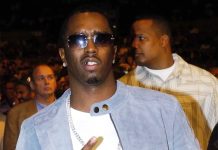Okyeame Kwame has stated that there might come a time when he will engage in politics, but not necessarily in a role such as a Member of Parliament (MP).
Moreover, the rap icon expressed his intention to significantly change the current process of electing leaders before he would consider entering politics.
He criticized the practice of aspiring parliamentarians courting the favor of delegates within political parties, involving substantial financial and material incentives. He views this as an impediment to the country’s progress and equates it to bribing delegates for votes. This pattern, he believes, hinders efforts to combat bribery and corruption once political power is achieved.
He described this phenomenon as a “Political Investment Recuperation Programme (PIRP),” calculating that if one were to campaign with an investment of US$600,000 and then earn a parliamentary salary of GHS20,000 per month, the total earnings over four years would not come close to the initial campaign investment. This raises the question of whether one’s motivation for entering parliament is self-serving or to serve their constituency.
Known affectionately as OK, he called for a dialogue on this issue and advocated for immediate reform.
Additionally, he criticized certain presidential or executive powers outlined in the Constitution of Ghana, such as the executive’s role in selecting key positions like the Inspector General of Police, the Attorney General, the Chief Justice, the head of the Economic and Organized Crime Office, and other chief executive officers.
The acclaimed singer-songwriter argued that Ghana’s primary issue is a lack of discipline, not vision, as he believes the country’s leaders are knowledgeable and visionary. He emphasized that the discipline to execute these visions is what is lacking.
He questioned the checks and balances that underpin democracy, particularly when the president has the authority to appoint the Chief Justice, which could potentially influence judicial decisions.
Okyeame Kwame highlighted that he is leading advocacy efforts against such counterproductive elements in Ghana’s constitution.









